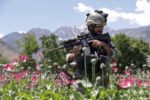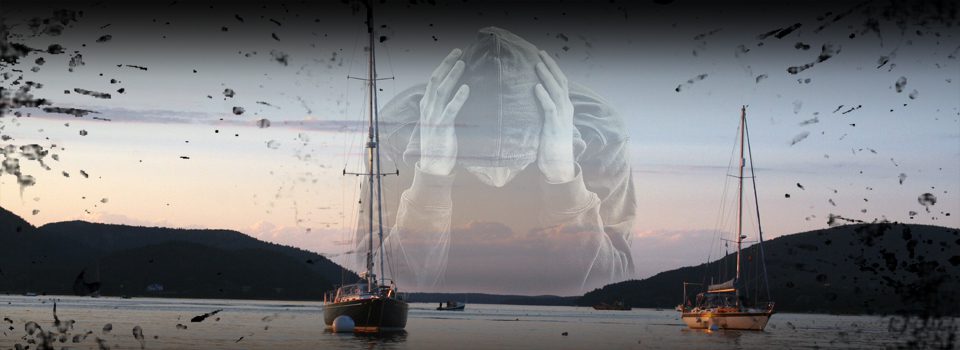President Trump stated in his Afghanistan speech of August 24, 2017 that, “We are not nation building again … But to prosecute this war, we will learn from history”. Fortunately, our news media decided not to publish fake statements without analysis. Thank you Domenico Montanaro, NPR Political Editor, for the commentary to POTUS’ Address on Afghanistan.

As it relates to “nation building”, “learn[ing] from history” and our current opioid epidemic, Montanaro sets the record straight:
Plenty of countries have gotten bogged down in Afghanistan for a reason — it’s very difficult to find socioeconomic and political solutions. It’s a desperately poor country with few to no alternatives to poppy in its economy. Poppy is used to create heroin, and Afghanistan is responsible for 85 percent of the world’s heroin supply, according to a 2015 report from the U.N.
Per Trump, the focus of the United States will be on using Afghanistan as the venue for operations focused on serving American security ends, not building schools or roads or power plants. That hasn’t been the objective of Americans in Afghanistan for several years, but the president apparently believes that decrying “nation-building” resonates with voters exhausted by the years-long commitment there.
Of course we need to learn from history, but let’s deal with real history and not “fake” history! As I stated in my post of June 2, 2015, Heroin Epidemic: Reason #5 – Blame the War in Afghanistan:
Before the war, the Taliban subsidized Afghan farmers to grow food crops rather than opium. Opium poppy is the plant from which heroin is made. When the Taliban fled or went into hiding, the farmers lost their financial support to grow food, and returned to growing heroin, a crop that thrives in regions of Afghanistan. The increased amount of heroin production flooded the European markets. As a result, the heroin being produced in South America and Mexico was no longer needed in Europe and the excess supply flooded the United States.
It may be politically expedient to decry “nation-building” when justifying another surge of troops in Afghanistan, but without our subsidizing Afghan farmers to once again grow food crops, the world-wide heroin market will continue to thrive. The result will be ever more lost lives and increased costs related to treatment or even worse, caring for those who have overdosed with resultant cognitive or physical disabilities.
President Trump has declared that the opioid crisis is a national emergency. “Building upon the recommendations in the interim report from the President’s Commission on Combating Drug Addiction and the Opioid Crisis, President Donald J. Trump has instructed his Administration to use all appropriate emergency and other authorities to respond to the crisis caused by the opioid epidemic,” the White House said in a statement.
The President’s Commission is correct that it is important to:
- enforce requirements that health plans provide the same level of services for those with mental health and substance use issues
- equip all law enforcement officers with the opioid overdose antidote naloxone;
- provide federal funds to develop sensors to detect fentanyl; and
- increase the use of medication-assisted treatment for opioid addiction in prisons
But is not an ounce of prevention worth a pound of cure? I don’t care if you don’t want to call it nation building – but let’s use common sense and learn from history. We can pay now (to subsidize the Afghan farmers to grow food crops) or we can pay more later (from heroin continuing to flood the European and North American continents).
Thought you might like this excerpt from Addiction on Trial, which serves to reinforce the need to learn from history.
Welcome aboard the Margaret Two, a scalloping vessel headed out to sea with Oxycontin on board!
It was a clear Wednesday afternoon, June 2, 2004, when the Margaret Two set out right on schedule to navigate through the Gulf of Maine to Georges Bank, leaving Portland’s modest skyline behind. The calm, soft ripples etched the water’s surface of this North Atlantic harbor. None of the four crewmembers paid much attention to the water’s beauty as they had all had the experience of leaving a calm port, only to be confronted by angry seas with barely a moment’s notice.
Captain Clode, a soft-spoken gentleman in contrast to his burly body, had been persistent in his nagging to get the crew on board for the early afternoon departure. Since this was their first trip in several months, the men were somewhat lackadaisical. As the crew gathered on the dock, looking a little haggard, Clode cajoled and herded them. He had his job to do, not unlike an owner of a small manufacturing company, encouraging his workers to hustle to their assigned spots so the workday could begin. Time is money and nowhere is this truer than on the high seas. The engine is running, gas is being consumed, and costs are being incurred. The immediate goal was to expeditiously depart port and get out to Georges Bank so the manufacturing could begin. Captain Clode had money on the line, and what he needed to manufacture was fish, specifically scallops. He knew the crew would shift into high gear once the scallop beds were located, but while on dry land, they had little incentive. Leaving loved ones and playful times behind was not the worst of it. Wondering what you might be missing while out at sea was certainly difficult, but somewhere in the recesses of your mind lurks the fear of whether you will ever return to that which you are leaving behind.
“Come on guys; it’s not like we’re heading out for a picnic. Georges Bank isn’t just off the coast, you know. We’ve got a ways to go and some work to get done. Hey, the sooner we get going, the sooner we get back, so if you would please get your lazy asses moving a little faster, it’d be much appreciated.” …
There was less of a problem with alcohol being smuggled on board these days, especially on the Margaret Two under the captain’s watchful eye, than with drugs. Drugs were less easy to detect than alcohol and more easily portable. Heroin, in the class of drugs called opiates, and its first cousin Oxycontin, a long-acting prescription opiate, were rapidly becoming the drugs of choice in virtually all of the fishing villages of coastal New England. Oxycontin pills, referred to as “Oxys,” were easily ingested in contrast to heroin, which customarily was either injected or snorted.
Initially the drugs were mostly limited to large cities but the enormous profits inherent to the drug trade encouraged expansion of markets, and the sociological harm metastasized, weaving an intricate web that encompassed all regions and spared no locales, finding its way into the veins of small cities and rural towns. The New England seacoast cities of Boston, New Bedford, and Portland had become major distribution centers for heroin, while the illicit Oxycontin trade also grew exponentially. Coast Guard patrols seemed more likely to identify and deter terrorists and illegal immigrants from entry into the United States than to intercept drug smugglers….
Heroin was much cheaper, easier to find on the street, and, due to its increased potency in recent years, a more cost-effective drug. The decision to send troops to Afghanistan created a situation whereby the farmers, who previously had been subsidized by the Taliban to cultivate crops other than opium, were left without support or funding. America did not fill the void and as a result there was a return to growing opium, the precursor to heroin. The warlords cranked up their opium production, flooding the market and increasing worldwide availability. The Taliban gradually returned to the fields, but this time as a Mafia-like security force, “protecting” the farmers and taking a cut of the profits from the opium production. This unintended result of the war in Afghanistan kept the heroin supply up and the cost down. Much of the heroin being sold was uncut, making it much more potent.
Too many fishermen had been exposed to these easily obtainable narcotics and varying degrees of use was endemic. Those with an infrequent habit, which were few because of the difficulty in curtailing use once it started, could be physically and mentally functional without the drug. For those addicted, due to higher quantities consumed or more frequent use, a day at sea when heroin or a replacement drug was not readily available was a horrific day in hell. The Margaret Two was not immune to the effects of this contagion as it headed out to Georges Bank.

